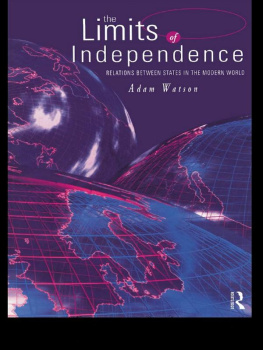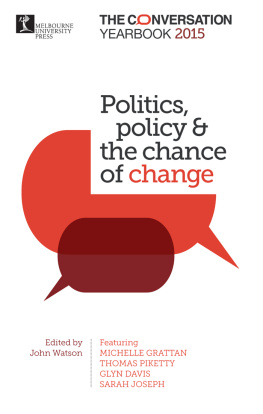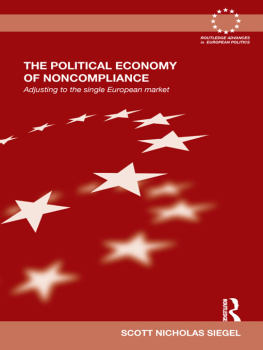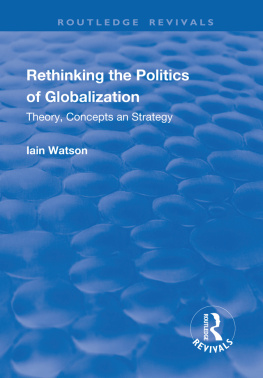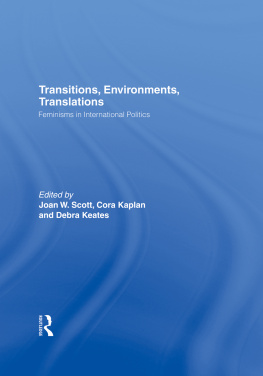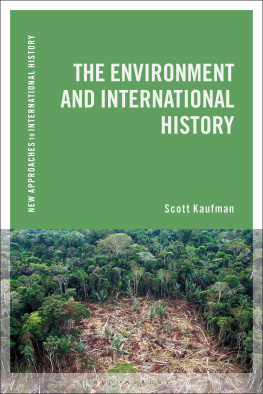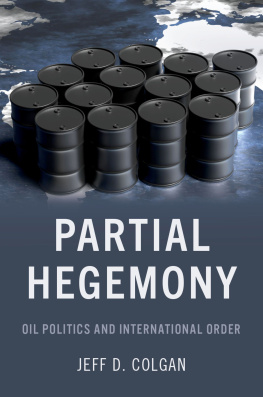
INTERNATIONAL ORDER AND THE POLITICS OF DISASTER
In this indispensable and comprehensive text, Scott D. Watson critically examines the current understanding of international order that underpins international disaster management and disaster diplomacy.
Based on empirical analysis of the three international disaster management regimes disaster relief, disaster risk reduction, and disaster migration and case studies of disaster diplomacy in the United States, Egypt and China, Watson argues that international disaster management and disaster diplomacy are not simply efforts to reduce the impact of disasters or to manage bilateral relations but to reinforce key beliefs about the larger international order. Challenging the conventional understandings of disasters as natural, as exogenous shocks, or as unintended and accidental outcomes of the current order, this text shows how the ideological foundations of the current heterogenous international order produce recurrent disasters.
International Order and the Politics of Disaster is a vital source for undergraduate or graduate students interested in international responses to disasters and complex humanitarian emergencies, forced migration and displacement, as well as climate change and development.
Scott D. Watson is associate professor of International Relations and chair of the Department of Political Science at the University of Victoria. He holds a PhD in Political Science from the University of British Columbia (2006) and is the author of The Securitisation of Humanitarian Migration (Routledge, 2009).
INTERNATIONAL ORDER AND THE POLITICS OF DISASTER
Scott D. Watson
First published 2020
by Routledge
52 Vanderbilt Avenue, New York, NY 10017
and by Routledge
2 Park Square, Milton Park, Abingdon, Oxon, OX14 4RN
Routledge is an imprint of the Taylor & Francis Group, an informa business
2020 Taylor & Francis
The right of Scott D. Watson to be identified as author of this work has been asserted by him in accordance with sections 77 and 78 of the Copyright, Designs and Patents Act 1988.
All rights reserved. No part of this book may be reprinted or reproduced or utilized in any form or by any electronic, mechanical, or other means, now known or hereafter invented, including photocopying and recording, or in any information storage or retrieval system, without permission in writing from the publishers.
Trademark notice: Product or corporate names may be trademarks or registered trademarks, and are used only for identification and explanation without intent to infringe.
Library of Congress Cataloging-in-Publication Data
A catalog record for this title has been requested
ISBN: 978-0-367-20036-7 (hbk)
ISBN: 978-0-367-20037-4 (pbk)
ISBN: 978-0-429-25927-2 (ebk)
Typeset in Bembo
by Lumina Datamatics Limited
CONTENTS
SECTION 1
International Disaster Management Regimes
SECTION 2
Disaster Diplomacy and Relief in Practice
Since I began this project in 2013, I have accumulated a significant debt to all those who provided support, suggested additional readings and ideas, and challenged my claims. I would like to acknowledge the support of my colleagues and students at the University of Victoria, and express my gratitude to work with such a collegial and generous group. I would like to thank the Centre for Global Studies, where I spent a very fruitful and stimulating fellowship working on this project. The anonymous reviewers of this manuscript and audiences in various conferences where I presented parts of this work have provided insightful feedback, and I am appreciative of their constructive feedback.
I had the great pleasure to have Regan Burles and Can Zhao as research assistants on various parts of the project; thank you for your assistance.
Last, I would like to thank Alicia, Caleb, and Jacqueline for their love and support; completing this project would not have been possible without you.
Humanity appears to be rapidly approaching an age of disasters that may well rival or even surpass the disruptions of previous periods of calamity.1 Climate scientists expect the range of climate variability to expand, increasing the destructiveness of regular seasonal weather patterns and making once-rare climate events much more frequent. By most accounts, these changes are no longer preventable, even if the international community succeeded in reaching a binding resolution to curb greenhouse gas emissions. If the past decade is even a mild precursor to the near future, we should expect significant hardship and dislocation. Five of the hottest years on record have occurred in the 2010s. In the past 10 years, disasters have affected 1.5 billion people worldwide, killed over 700,000, and rendered another 23 million homeless (UNISDR, 2015a, 2015b). The costliest year on record for the United States in terms of natural disasters was 2017, with total damage exceeding $306 billion and with 16 different billion-dollar disasters (NOAA, 2018). According to the National Oceanic and Atmospheric Association (NOAA), government agencies and the insurance industry now consider losses exceeding $100 billion in damage due to natural disasters as the new normal.
The near inevitability of an escalation in the number and severity of disasters necessitates further exploration of how political communities understand, prepare for, and respond to disasters. The deadly combination of climate change, environmental degradation, burgeoning world population, and expanding inequality will drastically boost human vulnerability to natural and human-made hazards (Chipper and Pelling, 2006; IPCC Working Group II, 2014). This book examines current practices for managing disasters, arguing that they are not simply inadequate but actually function to sustain an international order that has given rise to the social, political, and economic factors at the root of the looming period of persistent disaster-induced crises.
International Order and the Politics of Disaster draws and builds on the now well-established claim that disasters are socially produced the outcome of complex interactions of natural hazards, social vulnerabilities, and intersubjectively established expectations about how the natural and social worlds operate. In contrast to accounts that depict disasters as completely natural, as accidents, or as interruptions in a linear process of development (Hannigan, 2012:51), the social view of disasters suggests that disasters are a function of social systems. Disasters disrupt important social routines and overwhelm the existing capacity to cope with these disruptions. In doing so, they reveal how the existing social capacity to handle disruptions has been (or has not been) developed and maintained (Stallings, 1988). Actors recognize events as disasters through intersubjective agreement that the event is in fact a disaster revealing how some social actors enjoy a privileged position in defining events as disasters (and not others) and marshalling extra social resources.
The central contribution of this book to the critical disaster studies literature that informs this project is that disasters are






